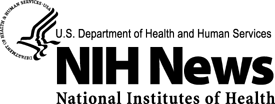| Recovery Act Funding Supports 23 Fellowships for Early Career Scientists
Funding from the American Recovery and Reinvestment Act will allow the National Institutes of Health to create jobs for early career scientists and increase the ranks of researchers and clinicians working in the global health field. With $3 million in funding over the next 18 months, the NIH’s Fogarty International Center will be able to support 23 additional participants in its Clinical Research Training Scholars and Fellows Program.
The ARRA award is being made to Vanderbilt University's Institute for Global Health, which administers the scholars program managed by Fogarty. The initiative provides a year of mentored clinical research training at NIH-funded research sites in the developing world, designed to encourage the recipients to establish careers in global health-related clinical research. Among the new positions created will be 13 research fellows and 10 advanced research fellows, who will be able to continue their projects for a second year. The fellows will be employees of Vanderbilt University and other U.S. institutions, coming from medical schools and universities across the country.
"Researchers in post-doctoral positions are vulnerable during this economic downturn," said Fogarty Director Roger I. Glass. "These newly created jobs are an example of the Recovery Act’s effectiveness in stimulating a crucial sector of the American economy, harnessing the enormous interest in global health among college students and ensuring the United States remains competitive in the biomedical research arena."
In addition to carrying out research projects, the 13 fellows will conduct training workshops in the United States and abroad and serve as lecturers in their respective areas of expertise. The 10 advanced research fellows are early stage scientists who have already completed a year in the scholars program and will expand their ongoing research at foreign sites as a result of the new funding. The advanced fellows will also design curriculum in research skills for use by the program and act as mentors for other trainees.
"We’re seeking a new generation of global health research leaders," said Dr. Sten Vermund, director of the Institute for Global Health at Vanderbilt University Medical Center and principal investigator for the Clinical Research Training Scholars and Fellows Program. "The clinical research that our new fellows will oversee will help the global economy to prosper while benefiting Americans worldwide, including military personnel and travelers abroad."
Emily Wong, M.D., a University of California, San Francisco resident physician and one of the second year advanced research fellows supported by the funding, will continue a study recently begun in South Africa. Working with the Reproductive Health and HIV Research Unit in Johannesburg, Dr. Wong will analyze the high percentage of early deaths in patients who begin antiretroviral therapy (ART) for HIV. By using needle biopsies of various organs, she and her colleagues will be able to access more data on the patients than was previously available. "Despite the huge success of antiretroviral therapy, little information is available about the 10 to 20 percent of patients who die in the early stages of ART," said Dr. Wong. "This new recovery funding will allow us to gather information on the high number of HIV patients whose early deaths have been gone largely untraced."
Another second year advanced research fellow, Joseph Tucker, M.D., from Massachusetts General Hospital, will be starting a new project to examine the growing syphilis epidemic in China. Collaborating with China’s National Sexually Transmitted Disease Center in Nanjing, Dr. Tucker will link his study to an already existing screening program run by the World Health Organization. "This grant provides a very exciting opportunity," he said. "In Shanghai alone, syphilis is the most commonly reported infection, surpassing even tuberculosis. This study will help us determine the causes and hopefully help to eventually ensure that patients get tested for both syphilis and HIV."
Some of the research fellows will be carrying out studies focused on health problems that are also prevalent in the United States such as acute heart failure, herpes suppression, HIV, respiratory infections, colorectal cancer and glaucoma. The fellows’ areas of expertise include infectious diseases, injury and trauma, oncology, ophthalmology, cardiology and pediatrics.
The Fogarty International Center, the international component of the NIH, addresses global health challenges through innovative and collaborative research and training programs and supports and advances the NIH mission through international partnerships. For more information, visit www.fic.nih.gov.
The National Institutes of Health (NIH) — The Nation's
Medical Research Agency — includes 27 Institutes and
Centers and is a component of the U.S. Department of Health and
Human Services. It is the primary federal agency for conducting
and supporting basic, clinical and translational medical research,
and it investigates the causes, treatments, and cures for both
common and rare diseases. For more information about NIH and
its programs, visit www.nih.gov.
The activities described in this release are being funded through the American Recovery and Reinvestment Act (ARRA). More information about NIH’s ARRA grant funding opportunities can be found at http://grants.nih.gov/recovery/. To track the progress of HHS activities funded through the ARRA, visit www.hhs.gov/recovery. To track all federal funds provided through the ARRA, visit www.recovery.gov. |

